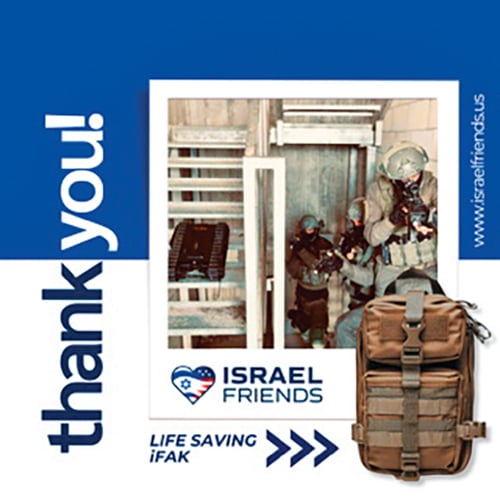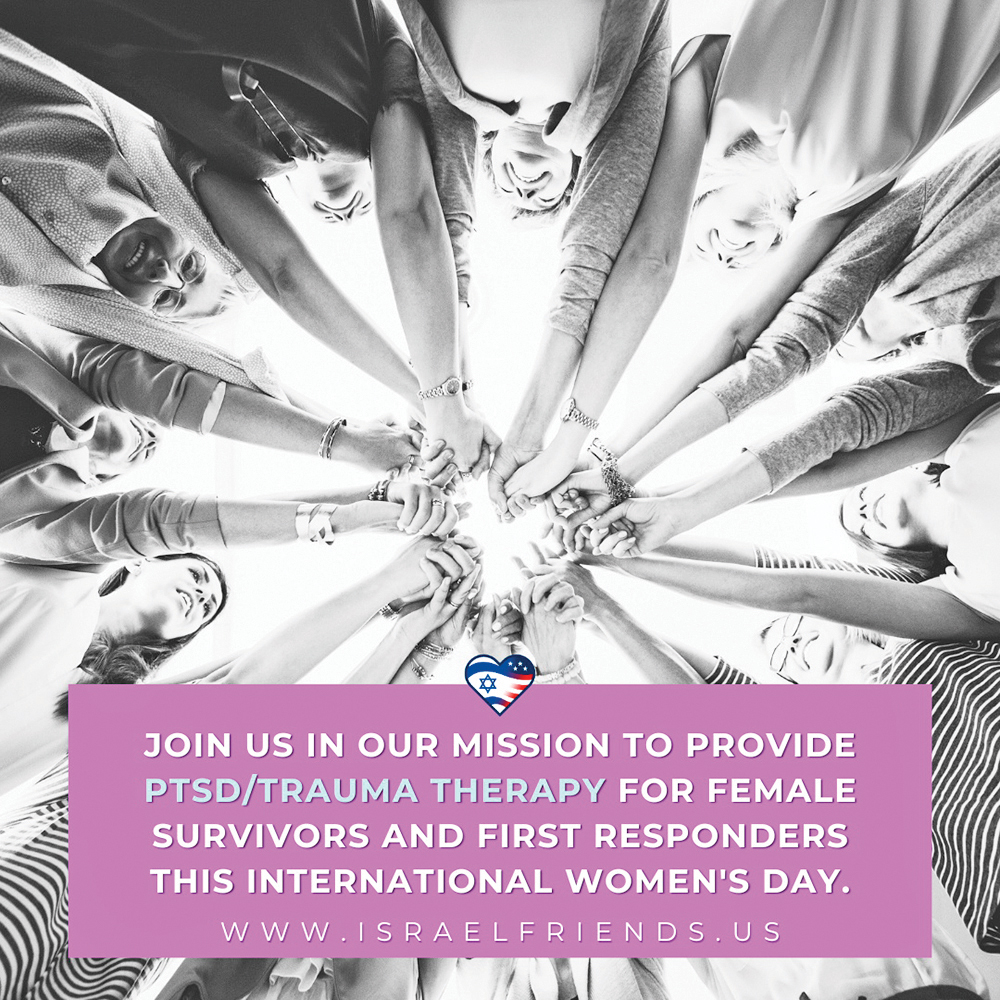
“Israel Friends” is a nonprofit organization that, like many others, started in the wake of October 7. What sets it apart from other groups that began at that time is that its leadership was immediately prepared to hit the ground running with specialized expertise in aid delivery.
Israel Friends is a spinoff mission of an already established and successful organization, The Worldwide Friends Foundation (WFF), which is a North American nonprofit started by entrepreneurs to help communities and countries during crises. WFF started after Russia invaded Ukraine and its focus was evacuating children and families from war zones, housing and feeding them, providing education for the children, and sourcing and supplying critical medical supplies. Over the course of two years, the WFF’s specific mission, Ukraine Friends, provided $35 million in critical aid to Ukrainian families and children in need.
Kyle Blank, the executive director of Israel Friends, shared with The Jewish Link that on October 7, the leadership of WFF heard what was happening in Israel and immediately sprang into action, saying, “We know what to do and how to do it, and it’s our moral responsibility to do this.”

Within the first week, they had organized full flights to Israel with soldiers, reservists, doctors, nurses and tremendous amounts of cargo, on some of the first planes to land in Israel that week. In fact, on October 10 – within 72 hours of the crisis – there was a full plane chartered of reservists and cargo from LAX to TLV.
Blank explained that Israel Friends was able to organize so quickly and effectively following the events of October 7 because it was built by a board that had already operated together to great success providing aid to Ukraine, so the team was able to create this new entity within hours. Furthermore, each of the board members are proud Zionists, and provided substantial support from their for-profit businesses, from staff time to proprietary technology, to get Israel Friends up and running in no time.
Israel Friends has a lean team: a staff of just eight people, some of whom are part-time. They believe that donation dollars are meant for the soldiers and people of Israel, so 95 cents of each dollar goes to the field. “We hold ourselves to that standard,” said Blank. A large, committed group of volunteers helps the organization fundraise, do marketing and, most importantly, deliver gear to the front lines.

Israel Friends also has 30 advisors between the ages of 30 and 70 who have made many crucial introductions to government officials and potential donors.
These advisors have been able to open many doors for Israel Friends, because they are well respected in the Israeli military and political environment. As an example, Blank explained that before he joined Israel Friends in November, he had spent the first month of the war volunteering with the Israeli Ministry of Defense where he brokered deals between Israel and safety equipment vendors around the world. That experience opened up new relationships for him that have proven helpful for Israel Friends.
Israel Friends has three main areas of focus: delivering critical aid to soldiers and first responders, supplying commercial technology to soldiers that changes the modern battlefield, and providing timely access to mental health support for Israelis who need it.
Providing aid and technology solutions for soldiers, first responders and civilian guards (kitot konennut) is crucial. “That’s our largest bucket,” said Blank. So, if other groups such as new nonprofits start working in that sector, Israel Friends either collaborates with them or pivots to something else within the larger goal that needs more attention.
“What is critical to note,” said Blank, “is that commercial technology can dramatically change the battlefield situation for a soldier today and significantly increase the chances that a soldier comes home alive and well.” Visibility is the underlying theme of this war – with commercial and military technologies being used to provide enhanced abilities. This comes from commercial drones (house to house or thermal overwatch), camera systems, night vision capabilities and more. Giving soldiers the ability to see their surroundings is the number one thing that Israel Friends is focused on today.

Providing mental health support to individuals and communities who have experienced trauma or may be suffering with PTSD is another key area of focus. “Thank God in Israel there are so many groups helping people through many variations of therapy. There are so many nonprofits providing support. But when we spoke to the Ministry of Health, we found that because it’s not covered by governmental insurance, there’s a growing gap in the ability to provide and receive psychiatric care. Before October 7, most often when people needed therapy in Israel, they didn’t go to a psychiatrist. They sought other forms of counseling, partially based on the knowledge that there was a three to six month wait time to see a psychiatrist. The system was backed up even then. Then October 7 terrorized the nation. Now the system is completely overwhelmed with tens of thousands of people who want to see psychiatrists and get care that only medication can provide,” Blank said.
Israel Friends saw this massive wave of need for psychiatric care and stepped up to find a way to help. They realized that many displaced people staying in Eilat or the Dead Sea area were not near psychiatrists and that many traumatized people, wherever they were, were afraid to leave their homes. Israel Friends realized that psychiatric services provided by Israeli practitioners were needed (as it’s too much paperwork for psychiatrists from abroad to participate). They also needed a telehealth platform so that people could meet with psychiatrists virtually. Israel Friends is now supporting a telehealth platform called “Healthy Mind.”
“The bottom line,” said Blank, “is that it’s not spoken about, but the suicide rate in Israel is going up. We are seeing it in every avenue—survivors of the 7th, Nova survivors, first responders, civilian guards, soldiers and reservists. It’s not spoken about because there is so much trauma going on that people don’t have a second to note the wave of suicide. And the main way to stop it is to provide psychiatric services in the country.” “Healthy Mind” is now integrated with Israel’s resiliency centers. An individual who needs psychiatric care can go to a resiliency center where a mental health professional will refer them to “Healthy Mind,” and instead of waiting 90 to 180 days, they will meet with a psychiatrist within five days. The company makes no profit from the patients they see. The end-to-end psychiatric care (including intake processing, diagnosis and follow-up) is priced at $500 for an adult and $1,000 for a child (since more sessions are necessary for a child).
Esther Marcus, clinical manager of the Sdot Negev Regional Resilience Center, said, “The needs are great. This service, Healthy Mind, has been life-changing for me both as a therapist and also a manager. There is a huge lack of psychiatrists in our area and people need the service right now, faced with huge anxiety and lack of sleep.” A patient who prefers to stay anonymous said, “Everything was done so professionally, and the most important thing for me was the help I received in this most difficult time.”
Today, Israel is still in crisis. While the government and army may be better situated in some ways since October, the truth is that private groups are providing substantial support in the areas of key technologies for soldiers, civilian guard and community safety assistance, and PTSD / trauma support for a nation that is experiencing waves of intense and dangerous emotions. Private groups – mainly nonprofits – are here to stay for the foreseeable future.
To find out more information or to donate, please visit: https://israelfriends.us










